試す 金 - 無料
The Fine Print
May - June 2023
|Poets & Writers Magazine
HOW TO READ YOUR BOOK CONTRACT

LET us imagine you've sold that book you've been working on for years. Say, too, that you and your publisher have hammered out the broad terms of a deal you can live with. When the contract shows up in your inbox, you may well let loose a private little whoop of joy. You might even post a picture of it online so you can bask in all the likes from your writer friends.
But then you have to read the thing.
As anyone who has seen a book contract can tell you, it is a long, dense, at times confusing document. And once you get past the big-ticket items like your advance and the subsidiary rights you're electing to keep or let the publisher have, a book contract is packed with boilerplate language that spells out the obligations between you and your publisher, some subtle, some of which may never come into practice. But, as with any legal document, you need to read it carefully to protect yourself in case something unexpected does happen.
Literary agents, who spend their lives negotiating book contracts, are your chief advocates and advisers here. If you don't have an agent, you can hire a lawyer with experience in publishing contracts. If you want to educate yourself about the process, the Authors Guild (authorsguild.org) offers a useful "Model Trade Book Contract," with standard contract language and commentary explaining what each provision means.
Ultimately, though, two factors will determine whether the contract you sign protects or costs you. The first and most important of these is your bargaining leverage. Every book contract is open to negotiation, and if a press wants to publish your work badly enough, you can demand quite favorable terms. But even if your bargaining power is relatively low, if you understand what you're agreeing to and why it's in the contract, you can still do a lot to safeguard your interests.
このストーリーは、Poets & Writers Magazine の May - June 2023 版からのものです。
Magzter GOLD を購読すると、厳選された何千ものプレミアム記事や、10,000 以上の雑誌や新聞にアクセスできます。
すでに購読者ですか? サインイン
Poets & Writers Magazine からのその他のストーリー

Poets & Writers Magazine
Literary MagNet
When Greg Marshall began writing the essays that would become his memoir, Leg: The Story of a Limb and the Boy Who Grew From It (Abrams Press, June 2023), he wanted to explore growing up in Utah and what he calls \"the oddball occurrences in my oddball family.\" He says, \"I wanted to call the book Long-Term Side Effects of Accutane and pitch it as Six Feet Under meets The Wonder Years.\" But in 2014 he discovered his diagnosis of cerebral palsy, information his family had withheld from him for nearly thirty years, telling him he had \"tight tendons\" in his leg. This revelation shifted the focus of the project, which became an \"investigation into selfhood, uncovering the untold story of my body,\" says Marshall. Irreverent and playful, Leg reckons with disability, illness, queerness, and the process of understanding our families and ourselves.
3 mins
July - August 2023
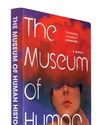
Poets & Writers Magazine
THE MEUSEUM OF HUMAN HISTORY
READING The Museum of Human History felt like listening to a great harmonic hum. After I finished it I found the hum lingering in my ears. Its echo continued for days.
4 mins
July - August 2023
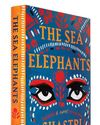
Poets & Writers Magazine
The Sea Elephants
SHASTRI Akella's poised, elegant debut, The Sea Elephants, is a bildungsroman of a young man who joins a street theater group in India after fleeing his father's violent disapproval, the death of his twin sisters, and his mother's unfathomable grief.
4 mins
July - August 2023
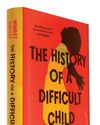
Poets & Writers Magazine
The History of a Difficult Child
MIHRET Sibhat's debut novel begins with God dumping rain on a small Ethiopian town as though. He were mad at somebody.
5 mins
July - August 2023
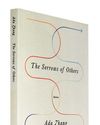
Poets & Writers Magazine
The Sorrows of Others
AS I read each story in Ada Zhang’s brilliant collection, The Sorrows of Others, within the first few paragraphs— sometimes the first few sentences— I felt I understood the characters intimately and profoundly, such that every choice they made, no matter how radical, ill-advised, or baffling to those around them, seemed inevitable and true to me.
6 mins
July - August 2023
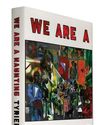
Poets & Writers Magazine
We Are a Haunting
TYRIEK White’s debut novel, We Are a Haunting, strikes me as both a love letter to New York City and a kind of elegy.
4 mins
July - August 2023

Poets & Writers Magazine
RADICAL ATTENTION
IN HER LATEST BOOK, THE LIGHT ROOM: ON ART AND CARE, PUBLISHED BY RIVERHEAD BOOKS IN JULY, KATE ZAMBRENO CELEBRATES THE ETHICAL WORK OF CAREGIVING, THE SMALL JOYS OF ORDINARY LIFE, AND AN ENGAGEMENT WITH THE NATURAL WORLD WITHIN HUMAN SPACES.
14 mins
July - August 2023

Poets & Writers Magazine
The Fine Print
HOW TO READ YOUR BOOK CONTRACT
10 mins
May - June 2023

Poets & Writers Magazine
First
GINA CHUNG'S SEA CHANGE
14 mins
May - June 2023

Poets & Writers Magazine
Blooming how she must
WITH ROOTS IN NATURE WRITING, ENVIRONMENTAL JUSTICE, POETRY, AND PHOTOGRAPHY, CAMILLE T. DUNGY'S NEW BOOK, SOIL: THE STORY OF A BLACK MOTHER'S GARDEN, DELVES INTO THE PERSONAL AND POLITICAL ACT OF CULTIVATING AND DIVERSIFYING A GARDEN OF HERBS, VEGETABLES, FLOWERS, AND OTHER PLANTS IN THE PREDOMINANTLY WHITE COMMUNITY OF FORT COLLINS, COLORADO.
17 mins
May - June 2023
Translate
Change font size
